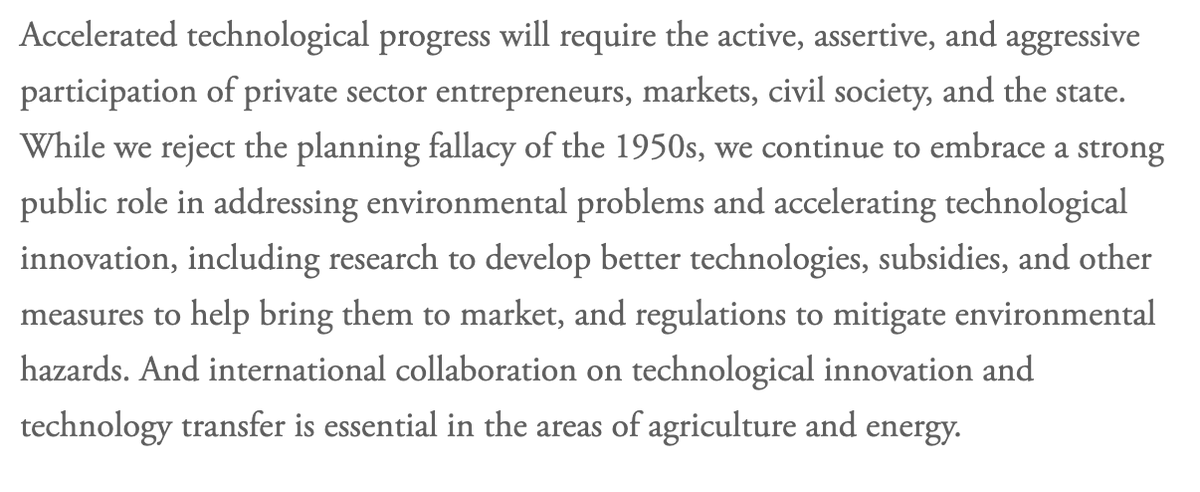1. @Leigh_Phillips asks what we meant in the ecomodernist manifesto by the "planning fallacy of the 1950's." https://twitter.com/Leigh_Phillips/status/1295755105182969857
2. Because 19 coauthors, there was a lot of back and forth and wordsmithing throughout. I couldn't begin to say exactly why and how that phrase ended up where it did. But read in context, it is pretty clear that it does not suggest opposition to an expansive role for government.
3. Moreover, the primary reason we decided to organize statement initially was because so many of us, as nuclear and technology advocates, where being misrepresented as techno-libertarians even though most of us had long supported public investment in tech and infrastructure.
4. So in long paragraph about the role of government, we included a line about planning fallacy, by which we meant, as I recall, soviet-style central planning (production quotas and like), consistent with rest of graph blessing just about every other role government might play
5. Many of us, following Steve Rayner, had also long been critical of top-down international climate targets and timetables vs what he called bottom up policies and measures at the national and sub-national level. https://thebreakthrough.org/articles/hartwell-paper-a-new-approach-on-global-climate-policy
6. Not all of the authors held this view, but certainly for me, I would extend the meaning of planning fallacy to the notion that the world, or even nations, can meaningfully make commitments to zero emissions or 100% clean energy over multiple decades.
7. As if future policy makers can ever be bound by the commitments of their predecessors or we have enough foresight about technology, society, or the economy to know how we will achieve those commitments with enough certainty to be binding or reliable.
8. Beyond what anyone actually means by planning, I think that terms like neoliberal and industrial policy get thrown around pretty indiscriminately.
9. New Democrats and New Labor made much of preference for market solutions. But on climate and energy policy, they always paired pricing and trading programs with substantial investments in technology and infrastructure, in other words, industrial policy.
10. Leftists savage green neoliberalism but mostly advocate regulation of fossil fuels, subsidies for private firms to deploy clean tech, mass transit, and infrastructure. Few if any explicitly call for nationalization of anything.
11. As I noted last summer, in @ISSUESinST, many of the disagreements are real and have consequences, but there is also less to them than most of the disputants acknowledge
12. Either way, the stakes wrt climate are a good deal lower than most suggest. Efforts to mitigate and adapt will be a muddle. Success will keep us closer to 2C. Failure will take us closer to 3C. The rest is mostly noise. FIN

 Read on Twitter
Read on Twitter



